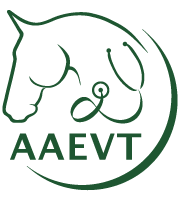Presented in abstract form at the 25th International Veterinary Emergency and Critical Care Symposium, Washington, DC, September 2019.
Supported by the President’s Council of Cornell Women Affinito‐Stewart Grant.
Abstract
Objectives
To investigate veterinary technician burnout and associations with frequency of self‐reported medical error, resilience, and depression and job‐related risk factors.
Design
Cross‐sectional observational study using an anonymous survey conducted between November 2017 and June 2018.
Setting
Four referral teaching hospitals in the United States and Canada.
Subjects
A total of 344 veterinary technicians were invited to participate. Response rate was 95%. Overall 256 surveys were ultimately analyzed.
Interventions
Burnout, depression, and resilience were measured using validated instruments. Respondents reported perceptions of workload, working environment, and medical error frequency. Associations between burnout and factors related to physical work environment, workload and schedule, compensation package, interpersonal relationships, intellectual enrichment, and exposure to ethical conflicts were analyzed.
Measurements and Main Results
Burnout, characterized by high emotional exhaustion, depersonalization, and low sense of personal accomplishment was common, and was positively associated with perceived medical errors, desire to change career, and depression. Burnout levels on all 3 burnout subscales were higher in this population than previously reported for a contemporaneous group of trauma nurses working with human patients (P < 0.05). Burnout was negatively associated with resilience. Respondents’ feelings of fear or anxiety around supervisor communications, perception that patient load was too high to allow for excellent patient care, and perceived lack of available assistance during sudden workload increases were all associated with burnout.
Conclusions
Burnout in veterinary technicians is common and is associated with numerous undesirable outcomes. Work‐related interventions to reduce burnout should focus on improving supervisor relationships and maintaining an appropriate patient:caregiver ratio.
